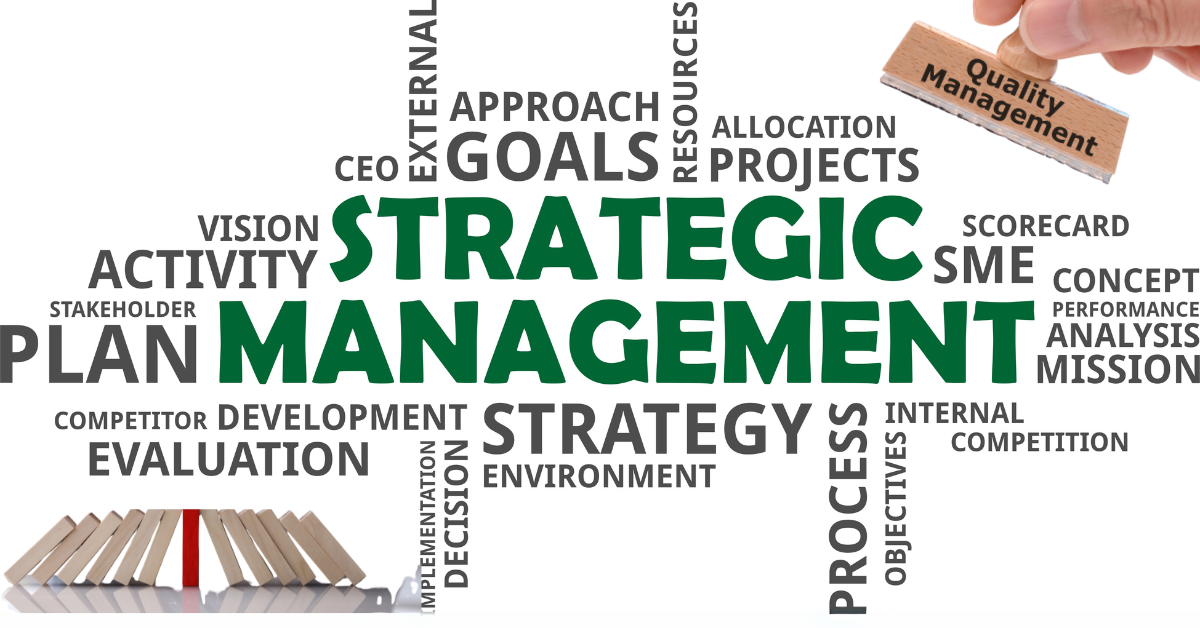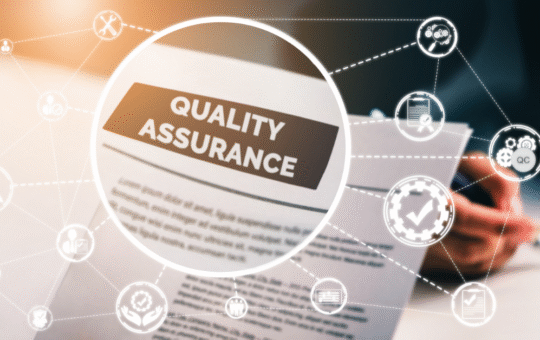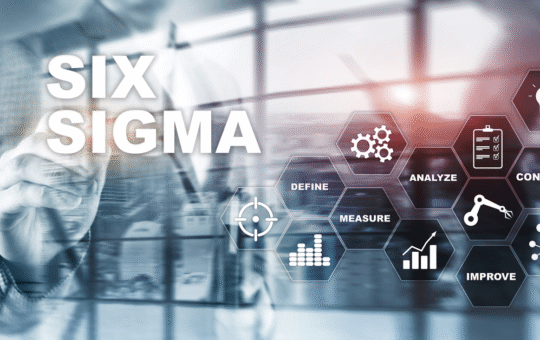
Level 6 Diploma in Strategic Quality Management and Leadership
- Develop high-level leadership skills focused on quality management.
- Gain expertise in aligning quality strategies with business goals for sustainable growth.
- Enhance your ability to manage organizational change and foster a culture of quality excellence.
- Achieve a globally recognized qualification to advance in senior management and leadership roles.
- Understand strategic quality management principles and how they relate to business success.
- Develop leadership skills that enable you to manage teams, projects, and organizational change.
- Learn to design and implement quality strategies aligned with organizational goals.
- Gain skills in managing risk and ensuring compliance with international quality standards.
- Build the ability to drive continuous improvement initiatives at the organizational level.
- Learn to measure and assess quality performance using key performance indicators (KPIs).
- Introduction to Strategic Quality Management
- Importance of quality in strategic management.
- Understanding the relationship between quality, customer satisfaction, and business performance.
- Leadership in Quality Management
- Leadership styles and their impact on quality management.
- Managing teams and leading quality-focused projects.
- Quality Strategy and Organizational Alignment
- Developing and implementing a quality strategy that supports business objectives.
- Aligning quality processes with company goals for long-term sustainability.
- Change Management and Continuous Improvement
- Techniques for managing organizational change and fostering a culture of continuous improvement.
- Lean and Six Sigma principles for strategic improvement.
- Quality Performance and Compliance
- Monitoring quality performance using KPIs and data-driven insights.
- Ensuring compliance with national and international quality standards (e.g., ISO 9001).
- Risk Management in Quality Systems
- Identifying and managing risks related to quality management.
- Developing risk mitigation plans and assessing risk impact on business operations.
- Pursue roles such as Quality Director, Head of Quality, Senior Operations Manager, or Chief Quality Officer.
- Lead quality improvement initiatives at a strategic level across large organizations.
- Drive corporate governance and align quality initiatives with business objectives.
- Expert Trainers: Learn from experienced quality management professionals and leaders with extensive industry expertise.
- Strategic Focus: Learn how to implement quality management strategies that align with broader business goals.
- Global Recognition: Earn a qualification that is recognized internationally, opening up senior roles in quality management.
- Hands-On Approach: Develop practical skills and insights through case studies and real-world applications in quality management.
Study Units
- Introduction to Strategic Quality Management
- Importance of quality in strategic management.
- Understanding the relationship between quality, customer satisfaction, and business performance.
- Leadership in Quality Management
- Leadership styles and their impact on quality management.
- Managing teams and leading quality-focused projects.
- Quality Strategy and Organizational Alignment
- Developing and implementing a quality strategy that supports business objectives.
- Aligning quality processes with company goals for long-term sustainability.
- Change Management and Continuous Improvement
- Techniques for managing organizational change and fostering a culture of continuous improvement.
- Lean and Six Sigma principles for strategic improvement.
- Quality Performance and Compliance
- Monitoring quality performance using KPIs and data-driven insights.
- Ensuring compliance with national and international quality standards (e.g., ISO 9001).
- Risk Management in Quality Systems
- Identifying and managing risks related to quality management.
- Developing risk mitigation plans and assessing risk impact on business operations.
By completing this course, learners will:
- Understand strategic quality management principles and how they relate to business success.
- Develop leadership skills that enable you to manage teams, projects, and organizational change.
- Learn to design and implement quality strategies aligned with organizational goals.
- Gain skills in managing risk and ensuring compliance with international quality standards.
- Build the ability to drive continuous improvement initiatives at the organizational level.
- Learn to measure and assess quality performance using key performance indicators (KPIs).
The Level 6 Diploma in Strategic Quality Management and Leadership is tailored for senior-level professionals who aim to enhance their leadership abilities and strategic understanding in quality management. This course is designed for:
Senior Quality Managers and Directors
Professionals responsible for setting and executing quality management strategies across organizations, seeking to elevate their leadership skills and improve organizational quality performance.
Head of Quality or Chief Quality Officers
Senior executives leading the quality function within large organizations, looking to refine their strategic approach to quality management and align quality initiatives with broader business goals.
Operations Managers and Senior Executives
Experienced managers aiming to understand the strategic role of quality management in business success and enhance their ability to lead quality-driven initiatives within their departments or organizations.
Strategic Planners and Business Leaders
Individuals who are involved in long-term planning and decision-making, seeking to integrate quality strategies with organizational objectives and drive sustainable growth.
Consultants and Advisors in Quality Management
Professionals offering quality management consultancy services who wish to deepen their expertise in strategic quality leadership and support high-level decision-making in businesses.
Leaders of Change Management Initiatives
Professionals leading change initiatives within organizations, aiming to drive quality improvements and foster a culture of continuous improvement.
Our assessment process is designed to ensure every learner achieves the required level of knowledge, skills, and understanding outlined in each course unit.
Purpose of Assessment
Assessment helps measure how well a learner has met the learning outcomes. It ensures consistency, quality, and fairness across all learners.
What Learners Need to Do
Learners must provide clear evidence that shows they have met all the learning outcomes and assessment criteria for each unit. This evidence can take different forms depending on the course and type of learning.
Types of Acceptable Evidence
Assignments, reports, or projects
Worksheets or written tasks
Portfolios of practical work
Answers to oral or written questions
Test or exam papers
Understanding the Structure
Learning outcomes explain what learners should know, understand, or be able to do.
Assessment criteria set the standard learners must meet to achieve each learning outcome.
Assessment Guidelines
All assessment must be authentic, current, and relevant to the unit.
Evidence must match each assessment criterion clearly.
Plagiarism or copied work is not accepted.
All learners must complete assessments within the given timelines.
Where applicable, assessments may be reviewed or verified by internal or external quality assurers.
Full learning outcomes and assessment criteria for each qualification are available from page 8 of the course handbook.
Top Courses
Related Courses
Let's Get in touch
Deleting Course Review
Course Access
This course is password protected. To access it please enter your password below:



